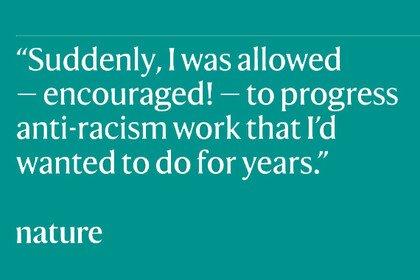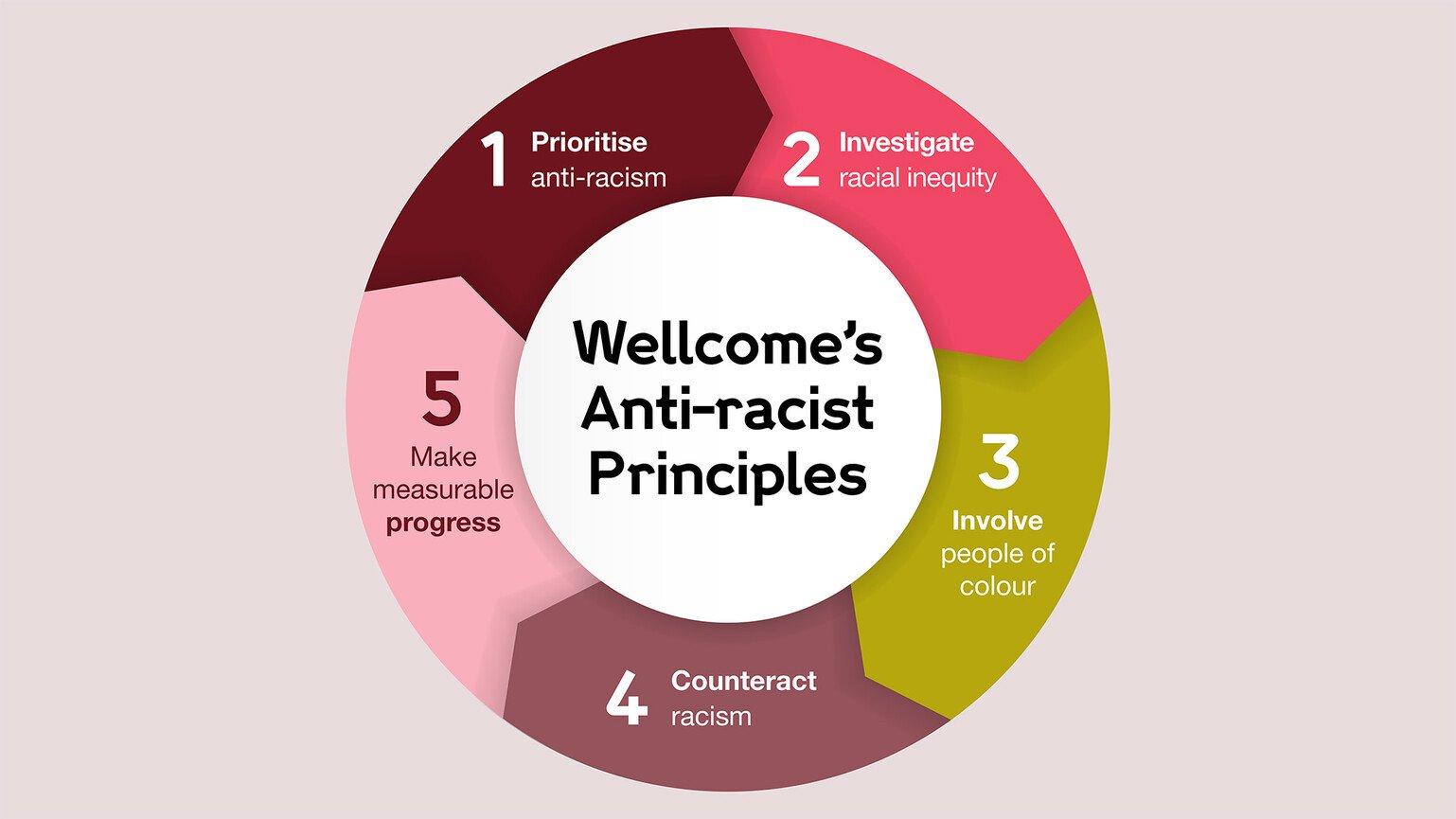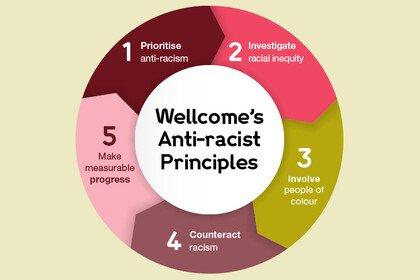
Becoming anti-racist: the principles guiding Wellcome's journey
Kalaiyashni Puvanendran introduces Wellcome's anti-racist principles and toolkit – a framework for how to be anti-racist at Wellcome.

Wellcome wants to be an anti-racist organisation. An organisation where our staff in racially minoritised groups thrive without enduring negative experiences linked to their identities. Where there is no racial inequity in our decisions about who we fund. And where the research we fund is inclusive in design and practice, driving better science and more equitable health solutions.
A year ago, while the unequal impact of Covid-19 was highlighting the deadly consequences of structural racism, US police officer Derek Chauvin murdered George Floyd. Millions protested across the world. Calls for change came from within Wellcome, too. In support of the Black Lives Matter movement, Wellcome made anti-racism commitments, including some specifically related to our funding and Wellcome Collection.
Since then, I’ve been co-leading Wellcome’s anti-racism programme with Tunde Agbalaya, with support from Sarah Christie. As part of this, I’ve led the development of Wellcome’s anti-racist principles, guidance and toolkit. Co-created with staff and external anti-racism experts, it provides a framework for how to be anti-racist at Wellcome.
I’m proud and indebted to everyone at Wellcome and all our external experts, who have drawn on their considerable experience and expertise to guide us all on the steps we can take to become a truly anti-racist organisation.
Wellcome’s anti-racist principles
- Prioritise anti-racism
- Investigate racial inequity
- Involve people of colour
- Counteract racism
- Make measurable progress
To explore the principles in full, as well as practical guidance and a toolkit to apply them in day-to-day work, download the principles and toolkit [PDF 315KB].
These principles are the essential initial steps of walking the talk of genuine culture change. Adopting an anti-racist stance will require of all of us courage, humility, and leadership. I admire and appreciate Wellcome’s commitment and leadership

Wellcome is one part of a bigger system that produces and maintains racial inequity. Tackling structural racism requires change across the whole of society, including the science, research and museum sectors. Although our anti-racist principles, guidance and toolkit are tailored for Wellcome’s leaders and the people who chair our funding committees, our context isn’t unique. Just as it was helpful for us while creating our new resource to speak with people who shared similar challenges, we hope that publishing it under a Creative Commons license will be useful for others, too.
Wellcome has a long way to go. In our last inclusion survey, 22% of staff in racially minoritised groups reported experiencing offensive language, jokes or behaviours from colleagues. Analysis of the people Wellcome funds also indicated inequity in our funding decisions:

Source: Wellcome grant funding data for competitively-assessed awards based at UK organisations (excluding international schemes). We sometimes use the term BAME (Black, Asian and minority ethnic) in our reporting because this reflects how we collect and aggregate data based on UK census categories, but there are limitations with the term and our approach will continue to evolve.
One resource on its own won’t create change. As part of our broader programme, we are also developing anti-racism training, supporting leaders and teams with their anti-racism work, and evaluating all these initiatives. Senior leaders have started using the principles and will continue to apply them as Wellcome delivers its new strategy.
Alongside acknowledging its past failings, the development of the anti-racist principles and toolkit show that Wellcome as an organisation is committed to change.
It takes time and effort to create lasting change. But there’s no excuse for not making the time and making the effort, when carrying on as usual is a choice to maintain racial inequity. We have to continually challenge racist behaviour, action, and inaction wherever we find it, including in ourselves. This resource isn’t something to be used as a one-off, it’s something to keep coming back to. And we know it is not just up to leaders, D&I practitioners, and people of colour – making an organisation anti-racist requires changes from us all.

